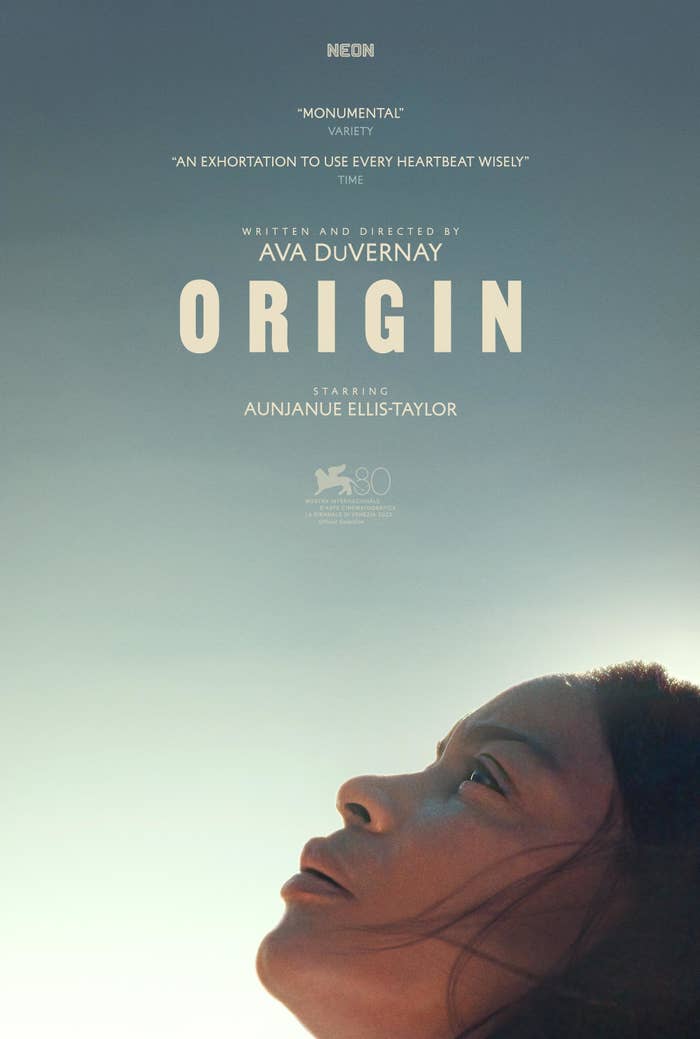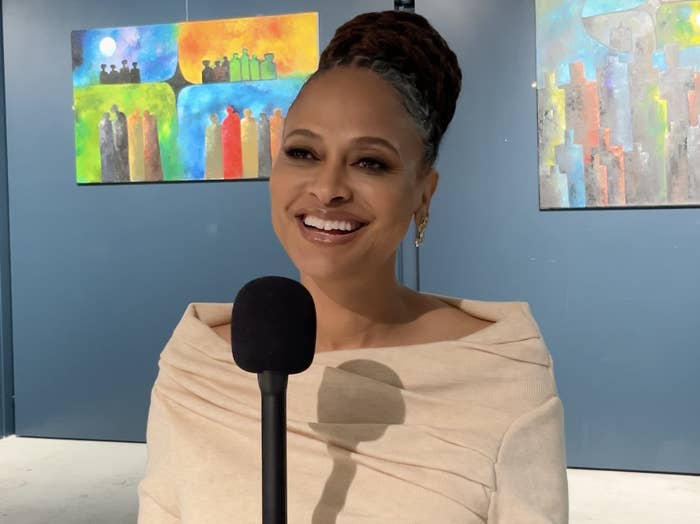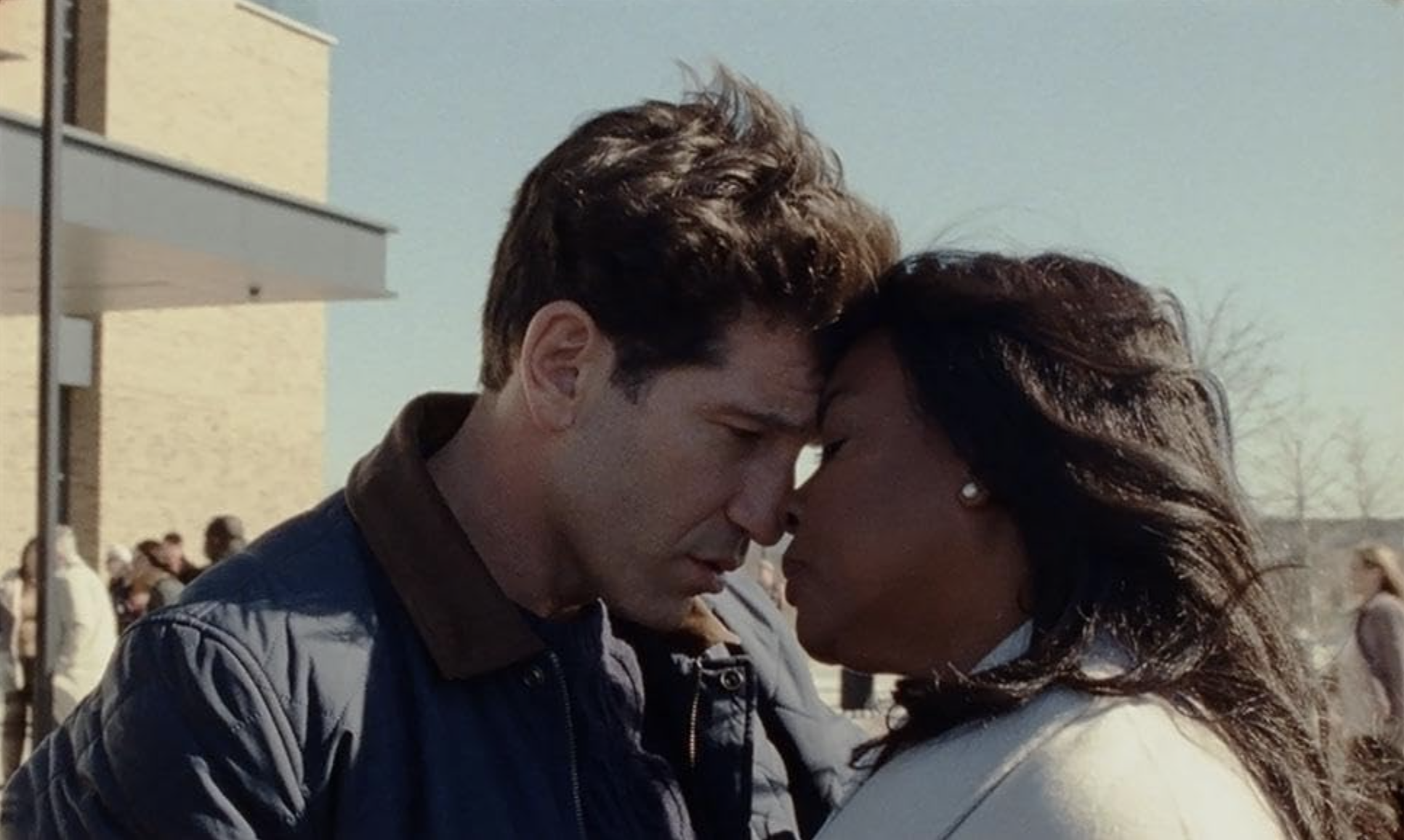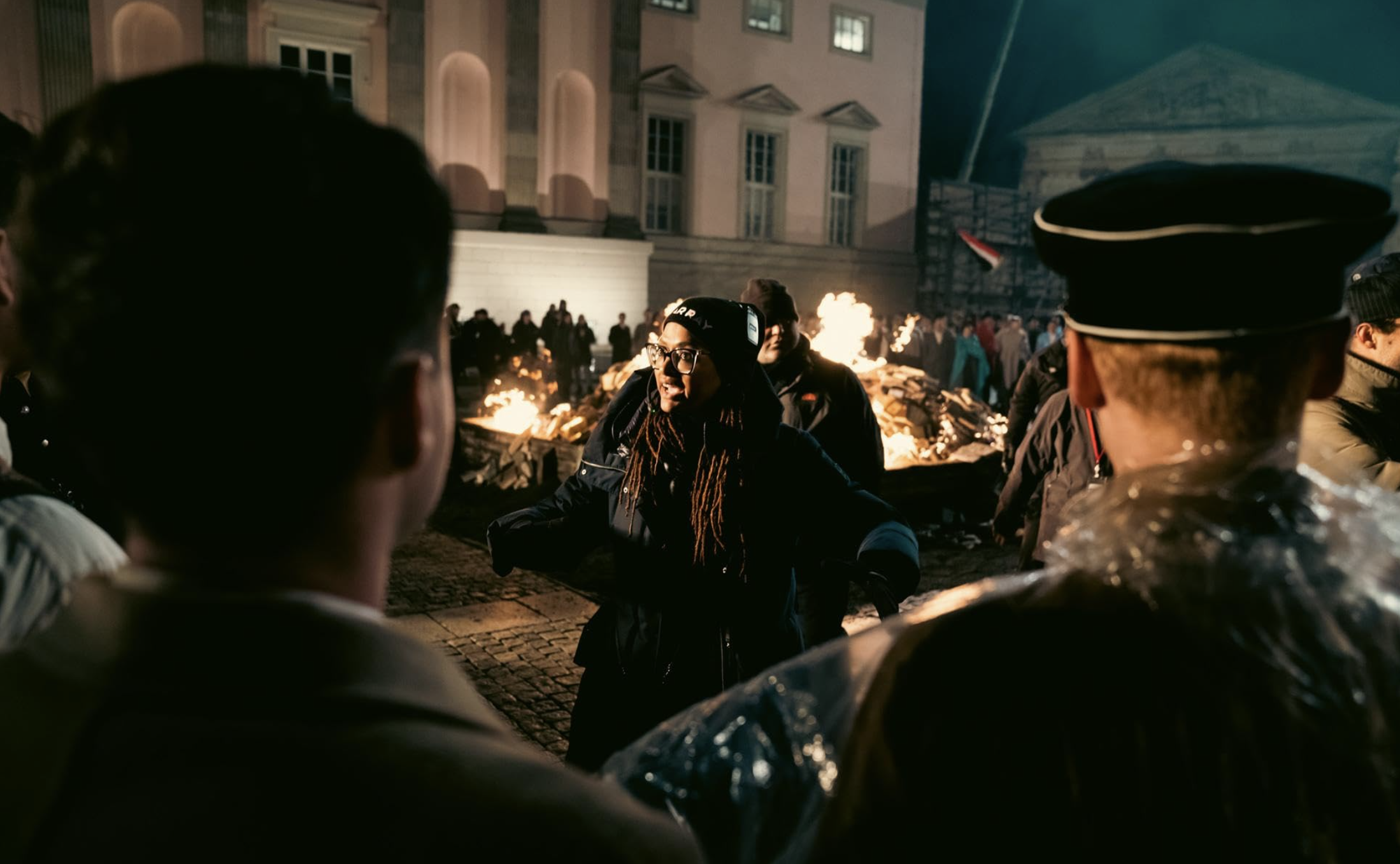Ava DuVernay's latest film Origin takes a look at the intersectionalities across humanity. Born from Isabel Wilkerson book CASTE: The Origins of Our Discontents, we watch her explore how the horrific times of our past and present are all connected. The film is led by Aunjanue Ellis-Taylor alongside the amazing talents of Niecy Nash-Betts and Jon Bernthal.

Sitting with Ava we discuss her process in picking her projects and the benefits of facing trauma:

Firstly, congratulations on the film, you leave the screen with questions in your mind for days if not weeks on end. In the film Isabel says we can’t escape trauma by running away from it, we have to confront it to release ourselves. Throughout your career you’ve dealt with heavy and traumatic incidents within the Black community, is this how you’re healing yourself and the community by making sure we face it head-on?
I really believe that we have been done a disservice by being told and believing that real violence and trauma isn't violence and trauma. This happens when we see killing and murder unattached to emotion for no reason, like in John Wick or whatever. You hear bullets going off, you hear blood, people are falling down dead and that's ok. But to watch our ancestors on a slave ship, to watch white people watching the lynching of a Black man, not even the lynching itself like the neck-breaking, you don't see any of that but you're watching the faces of white folks as they commit a crime. That's seen as trauma.
I think that we've been taught to or asked to ignore the things that really affect us, and call it by something that allows us to put it away as opposed to walking into a dark room, turning on the lights, looking around and saying there's nothing to fear here because I have the knowledge and knowledge is power. So, that's how I see it. I prefer to know, I prefer to read the book, talk to my elders, and understand the theories. Look at the pictures, watch the movie and know what's going on and empower myself in that way. I just invite people to think about it like that as opposed to trafficking in trauma. That’s how I go about it.

Within the film, I felt Isabel represents the Black creative that feels they have a duty to speak on every issue or injustice that occurs within our community. You’re a seasoned director and a lot of your projects speak directly to and for the Black community, do you feel the weight of responsibility as a Black creative?
No, I don't feel a burden, I don’t feel a weight, I do what I want to do. I decide on my projects. I'm not a director for hire, so I don't go around saying give me work, I write things that I want to express as an artist that I want to share and the things that interest me. I'm interested in history, I'm interested in community, I'm interested in solidarity. I'm interested in my brothers and sisters around the world and our interconnectedness to the spaces around us. So whether that comes out as A Wrinkle In Time with a Black girl travelling the universe searching for her father, or whether it comes out as When They See Us, the story of injustice of five boys who go up against the whole system to write their name or whether it's something like Origin, which contemplates humanity overall. Indian people, Nazis, Black folk in the American South and the ways in which they are all braided together. I think storytelling comes in all forms and I'm fortunate that I get to tell the stories I want to tell.
Like you said storytelling comes in all forms, and so does inspiration. Where do you find most of your inspiration and is there anything you tend to go back to?
I’m inspired by everything. One of my family members used to say, “If you're bored, you're boring”. The world is just alive, it's full of colours, full of experiences and everyone has a story. Everyone that you come across has some story, something that has changed who they are and that could illuminate something for you. Whether it's looking at art, whether it's reading, which is also art, whether it's just sitting around talking to someone, whether it's taking a walk in nature. I feel that in all those moments, stories come to my mind and I feel excited about what I get to do and I feel fortunate that I get to do it. You know, I started making films really late in life, when most people had already decided what they were going to do. I changed careers pretty late so I think that makes me even more grateful so I don’t take it for granted.

We’ve touched on the topics that have been focused on in your previous films as well as Origin, how do you ensure that you’re not taking the heaviness of these films with you? What do you do to protect not only yourself but those working with you?
We always make sure that there are councillors available in different ways because different people might seek help through different avenues. Some people want to talk to someone one on one, some people prefer the phone, some people prefer online. So on our productions, we make sure we provide all those opportunities for folks to talk to decompress. We even give out free apps for meditation to our crew members, whatever it takes. We also want them to feel free to be able to come to us as the producers and say, “hey, this is tough for me. Can I step away or can I not be here this day?”.
There's nothing really that I need to do for myself. My process comes through the writing process. So by the time I get to the set, I'm very prepared. I'm like the Terminator, I'm just there to get the shots. All of my emoting comes out when I'm writing it, I'm alone and I'm going through it in my mind and bringing the characters to life through their dialogue. That's when I kind of go through that process. So by the time I’m on the set, I’m very prepared, it’s out of my system because I’ve got to confront trauma.
